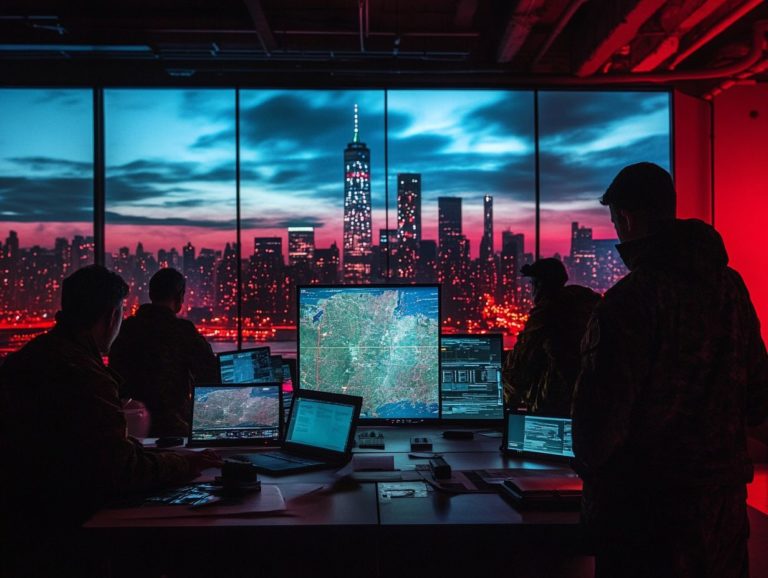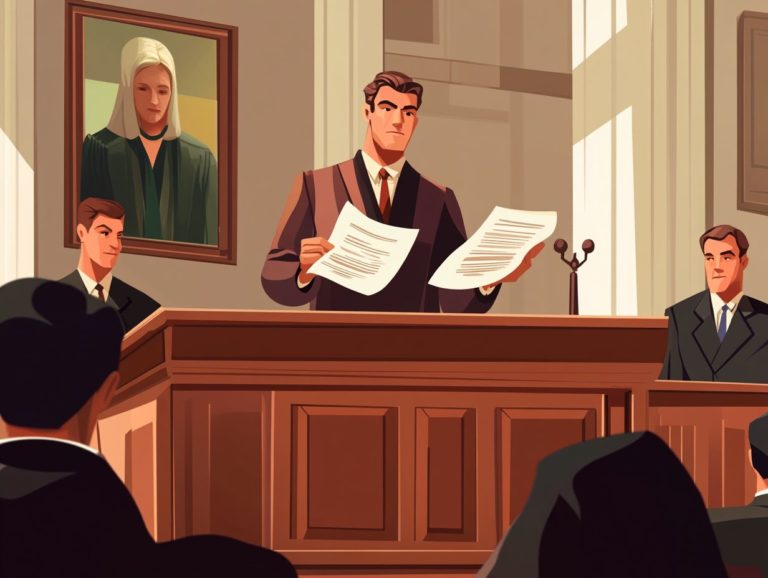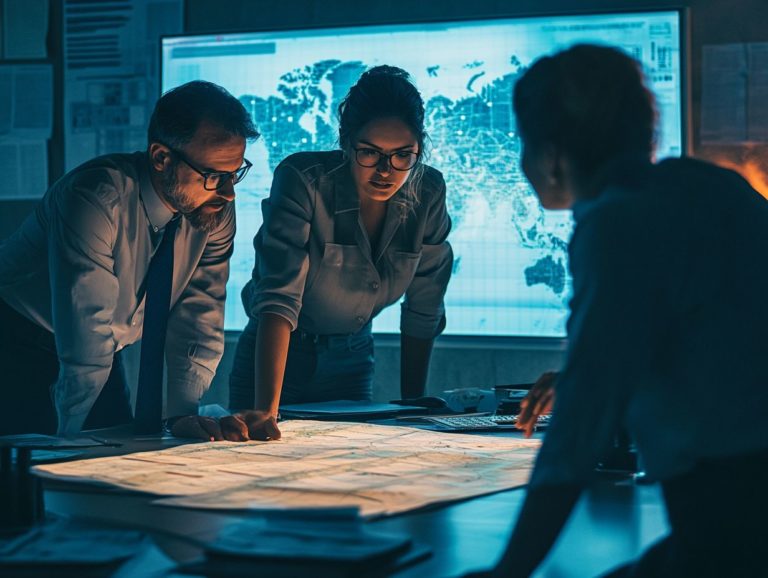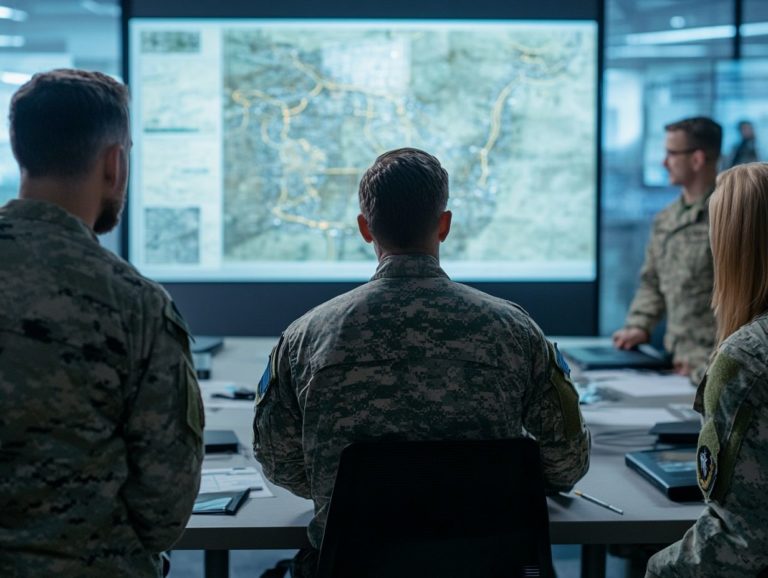The Impact of Social Media on Defense Strategies
In today’s digital age, social media has revolutionized the way we communicate. Its influence reaches deep into defense strategies.
This article delves into how platforms like Twitter and Facebook serve as vital tools for real-time information gathering. They boost collaboration among defense teams and help navigate modern security challenges.
However, these advantages come with significant risks, such as security vulnerabilities and the potential for misinformation to spread rapidly.
Get ready to explore best practices for using social media effectively while considering future advancements in this ever-evolving landscape.
Prepare to unpack the profound impact that social media has on defense strategies.
Contents
- Key Takeaways:
- The Role of Social Media in Defense Strategies
- Advantages of Utilizing Social Media in Defense Strategies
- Challenges of Incorporating Social Media in Defense Strategies
- Best Practices for Using Social Media in Defense Strategies
- Social Media and Defense Strategies
- Future of Social Media in Defense Strategies
- Frequently Asked Questions
- What is the impact of social media on defense strategies?
- How has social media affected military communication?
- What are the benefits of using social media in defense strategies?
- What are the potential risks of relying on social media for defense strategies?
- How has social media impacted modern warfare?
- What measures are being taken to mitigate the negative effects of social media on defense strategies?
Key Takeaways:
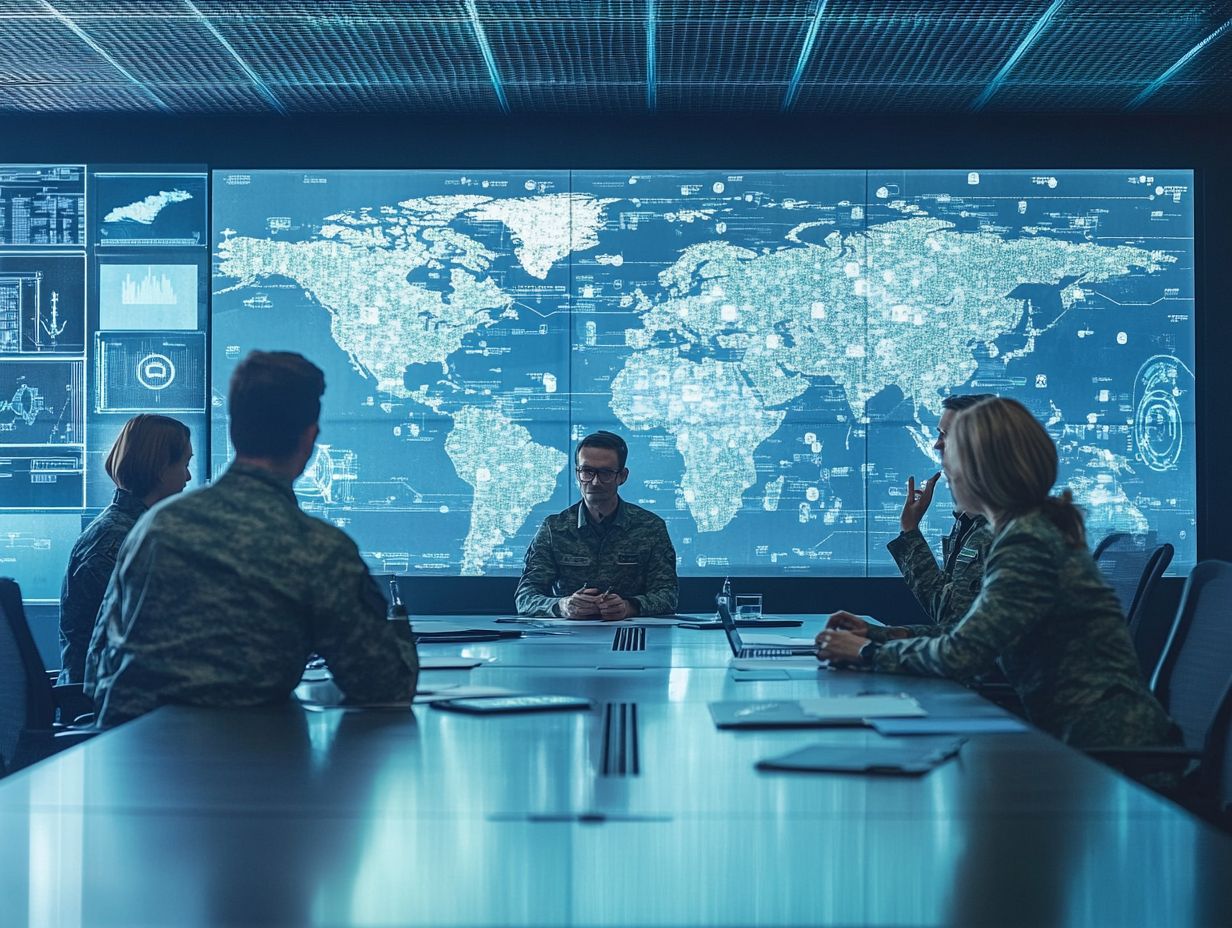
- Social media provides real-time information gathering for defense strategies, offering a more accurate and timely understanding of situations.
- Utilizing social media in defense strategies enhances communication and collaboration among defense personnel, improving overall effectiveness and efficiency.
- Incorporating social media in defense strategies presents challenges such as security risks and misinformation, necessitating the establishment of protocols and training for personnel to mitigate these risks.
The Role of Social Media in Defense Strategies
The role of social media in defense strategies has become increasingly pivotal. It affects how military members communicate and engage with the public.
As platforms like Facebook, Instagram, and Twitter shape perceptions, understanding their impact on the relationship between the military and the public is essential. This is vital for maintaining trust and order within the military community.
As Generation Z joins the military, their social media use brings both opportunities and challenges for information sharing and military operations. This makes it crucial to develop effective media relations strategies that foster accountability and trust.
Overview of Social Media in Defense
Social media plays a pivotal role in shaping military culture within contemporary defense strategies. It offers platforms for seamless information integration and effective communication among military personnel and the broader public.
As defense agencies navigate the digital landscape, channels like Facebook, Twitter, and Instagram provide vital real-time updates. They also cultivate a strong sense of community among service members and their families.
Military representatives utilize these platforms to share essential information. This ensures that both active-duty personnel and veterans stay informed about initiatives, events, and policies.
Furthermore, social media enhances public awareness and transparency. It allows military branches to engage directly with citizens, address inquiries, and promote positive narratives.
This strategic online presence is critical. It shapes public perceptions, bolsters recruitment efforts, and strengthens the operational effectiveness of the armed forces in today s interconnected world.
Advantages of Utilizing Social Media in Defense Strategies
The use of social media in defense strategies offers a wealth of advantages. You gain access to real-time information gathering and improved communication between military personnel and the public.
This dynamic exchange streamlines operations and significantly enhances public confidence in military efforts.
Real-Time Information Gathering
Real-time information gathering through social media gives you the power to react swiftly to emerging situations. This ensures that your responses are timely and accurate in this fast-paced digital landscape.
This capability boosts your understanding of what is happening around you and enhances your decision-making processes. It allows you to adapt strategies in real-time.
By leveraging platforms like Twitter, Facebook, and Instagram, you can access unfiltered reports, imagery, and updates shared by civilians on the ground. This treasure trove of information accelerates your threat assessments.
The ability to disseminate information quickly through these channels enables you to counter misinformation effectively. Ultimately, this leads to better operational outcomes and safeguards the interests of both military personnel and civilians.
Enhanced Communication and Collaboration
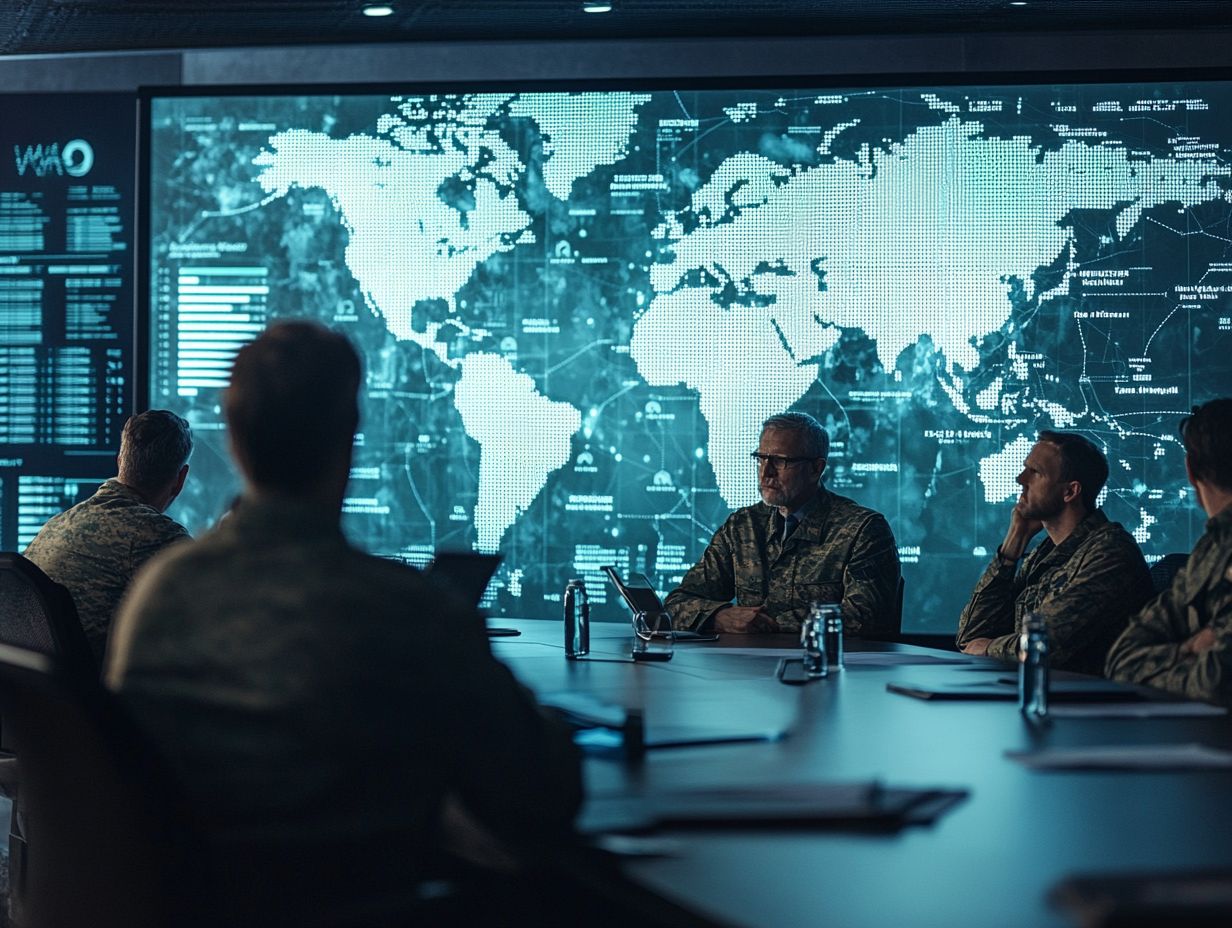
Social media boosts your ability to share vital information. This enhances operational efficiency and builds public trust.
These platforms connect military personnel and the public. They enable real-time updates that inform and engage communities.
By using innovative methods like multimedia storytelling, you can include public feedback. This enhances mission alignment and coherence.
Such dialogue improves transparency. It also counters misinformation and builds strong relationships.
As operations become more complex, using media and digital tools sharpens your situational awareness. This leads to better responses in changing environments.
Challenges of Incorporating Social Media in Defense Strategies
Incorporating social media has clear advantages but also brings challenges. Security risks, misinformation, and media scrutiny can erode trust in the military.
Security Risks and Vulnerabilities
Social media risks jeopardize sensitive information. Platforms like Facebook and Twitter can lead to unauthorized sharing.
You might accidentally reveal operational details or schedules that adversaries could exploit. Privacy settings on these platforms often fall short, increasing security threats.
Military personnel must remain vigilant. Implementing strict guidelines and training can help safeguard your units and sensitive information.
Misinformation and Disinformation
Misinformation poses challenges for military strategies. You may face inaccurate reports or misleading narratives that skew public sentiment.
Disinformation involves deliberate campaigns to spread confusion, like false reports about enemy actions. These tactics can distort public perception and erode support for defense initiatives.
Combatting these issues requires transparent communication and fact-checking. Promoting media literacy helps reinforce resilience against harmful narratives.
Best Practices for Using Social Media in Defense Strategies
Best practices for social media protect military professionalism. They ensure established protocols guide personnel in their online activities.
This safeguards both reputation and operational integrity.
Social Media and Defense Strategies
Establishing Protocols and Guidelines
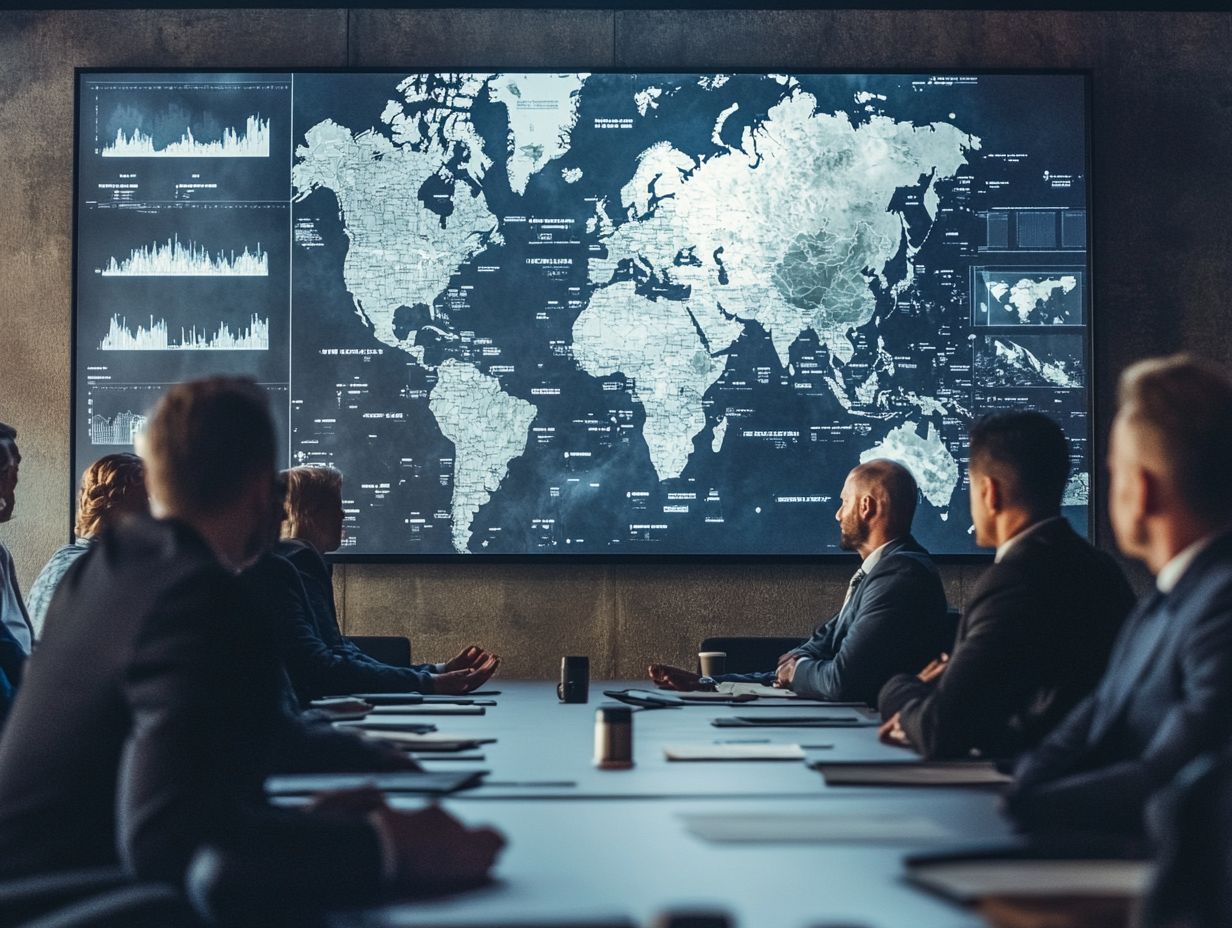
Establishing protocols and guidelines for social media use is essential for ensuring accountability and protecting the rights of service members during military operations.
In today’s digital age, where communication happens at lightning speed and information spreads like wildfire, having a robust framework for social media use is critical.
These protocols help maintain operational security. They also guide service members through the often complex landscape of online interactions. By clearly outlining acceptable behaviors and practices, military organizations can safeguard personal information and minimize the risks of breaches that could compromise both individuals and mission integrity.
These guidelines cultivate a culture of professionalism and respect. They empower you to understand your rights while defining the consequences of any misuse. This structured approach reinforces the military’s commitment to uphold ethical standards and create a safe environment for all personnel.
Training and Education for Personnel
Training and education for military personnel on social media usage are essential for grasping the implications of your online presence on military strategy and public perception.
In today s fast-paced digital landscape, understanding responsible communication is crucial right now. Focused training programs will equip you with the skills needed to identify appropriate content, enhancing your ability to navigate the complexities of online environments effectively.
Recognizing public perception is vital, as your posts can inadvertently influence the opinions of both allies and adversaries. Tackle pitfalls and seize opportunities with focused training. These programs not only instill personal accountability but also strengthen the safety of military operations, ensuring objectives are met while maintaining a favorable public image.
Future of Social Media in Defense Strategies
The future of social media in defense strategies is bursting with exciting possibilities! Advancements are poised to significantly enhance military operations while fostering seamless communication between military personnel and the public.
Potential Advancements and Adaptations
Potential advancements in social media platforms may greatly impact military strategy, ultimately boosting public confidence and trust in military operations.
As these platforms evolve, you might see the military integrating features like real-time updates that occur instantly as events unfold, secure communication channels, and enhanced data analytics. This would enable them to relay information effectively to both personnel and the public.
These innovations can foster greater transparency and accountability, positively influencing perceptions of military engagements.
Imagine deploying augmented reality tools to simulate scenarios or showcase missions on social media; this could engage wider audiences and promote a deeper understanding of military objectives and challenges.
The intersection of technology and communication presents a promising opportunity for enhancing operational effectiveness while bridging the gaps between military actions and community support.
Frequently Asked Questions
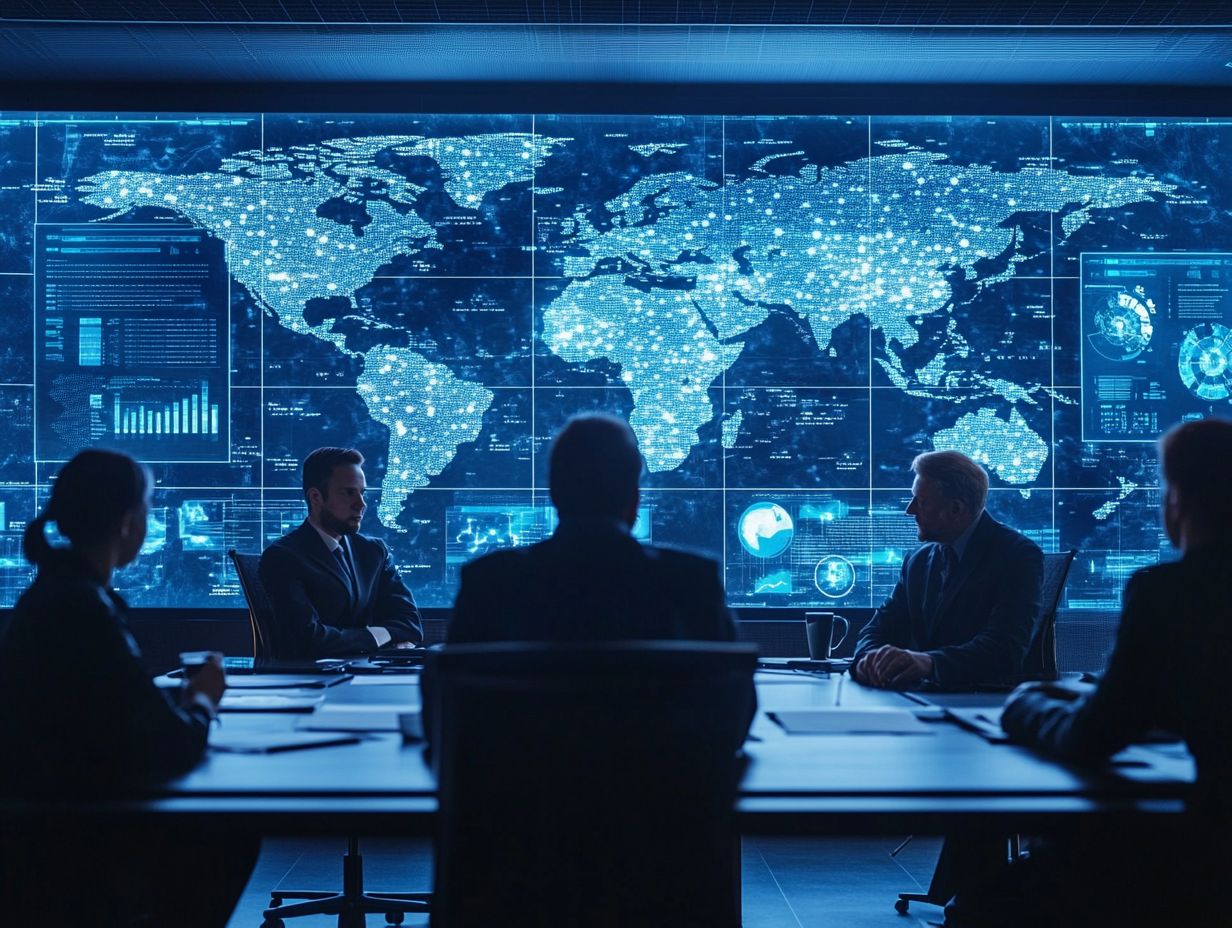
Social media has significantly transformed how defense strategies are developed and implemented, creating new opportunities and challenges for military forces worldwide.
Social media has revolutionized military communication by providing real-time information sharing and facilitating quick decision-making. It has also opened new channels for communication with civilians and other agencies.
Social media boosts public engagement and helps military personnel share information more effectively.
It also serves as a powerful tool for recruiting and training soldiers.
A key risk is the threat of sensitive information being compromised by online attacks or spying.
Relying on social media may also lead to misinformation and manipulation of public opinion.
Social media has transformed modern warfare by blurring the lines between civilian and military targets.
It significantly shapes public perception and support for military operations.
To stay ahead, military forces are urgently adopting strict social media guidelines for personnel.
They are also investing in advanced cyber protections to safeguard sensitive information.



